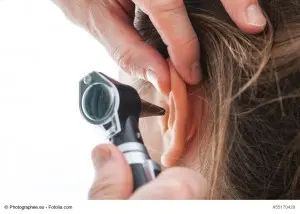Do you ever think you or your child develop too many ear infections? While ear infections are much more common in children, there may be an underlying cause for repeat or chronic ear infections that needs to be treated.
 Chronic Ear Infection Causes
Chronic Ear Infection Causes
The Eustachian tube goes from the middle of each ear to the back of the throat and is supposed to drain fluid from the ear. When you have a cold or allergies, the tube can swell and become blocked causing fluid to build up behind your eardrum.
A middle ear infection occurs when this fluid builds up and becomes infected. A chronic ear infection means that the initial infection did not completely go away. This is likely because the infection didn’t respond to treatment or was never treated.
Hearing Loss and other Complications
When you, or your child, have an ear infection that doesn’t respond to treatment, see Dr. Oliver at Coastal Ear, Nose & Throat to prevent a chronic ear infection. If a chronic ear infection is not treated correctly, it can lead to serious complications including:
- A ruptured eardrum
- Hearing loss
- Infection or damage to bones in the ear
- Damage to the tissues in the middle ear
- A cyst in the middle ear
Ear Tube Surgery in Savannah
Surgery may be needed to drain the fluid behind the eardrum if you or your child have a chronic ear infection or if you develop multiple ear infections in a short amount of time.
Surgery to insert ear tubes is a common procedure to drain the fluid and equalize pressure on the eardrums. A small cut is made in the eardrum and excess fluid may be removed. A small tube is then placed through the cut so fluid can continue to flow out of the middle ear and reduce the chance of another ear infection. The eardrum usually sheds the tube naturally after two to three years.
Depending on the cause of your ear infection, Dr. Oliver may also recommend removal of the adenoids or tonsils as well as other treatments.
Schedule an appointment at Coastal Ear, Nose & Throat Associates to discuss your best treatment option for chronic ear infection by calling (912) 355-2335

 Chronic Ear Infection Causes
Chronic Ear Infection Causes